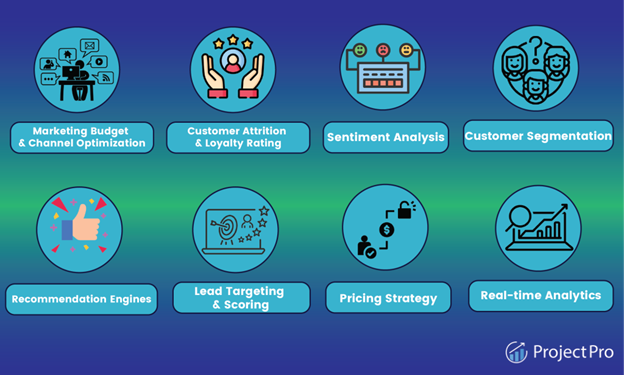SHARE

As the digital landscape continues to evolve, the role of data science in shaping marketing strategies is becoming increasingly significant. The ability to analyse and interpret complex data sets is now a key driver of marketing success, enabling businesses to optimise their return on investment (ROI). This article delves into the intricacies of utilising data science for marketing ROI enhancement.
Understanding the Role of Data Science in Marketing
Data science is a multidisciplinary field that uses scientific methods, processes, algorithms, and systems to extract knowledge and insights from structured and unstructured data. In the context of marketing, data science can be used to gain a deeper understanding of consumer behaviour, identify trends, and make data-driven decisions. By leveraging data science, marketers can move beyond traditional methods and adopt a more targeted approach. This can lead to more effective campaigns, improved customer engagement, and ultimately, a higher marketing ROI.
The Intersection of Data Science and Marketing
Data science and marketing may seem like disparate fields, but they intersect in many ways. For instance, data science can help marketers understand the customer journey, from the initial point of contact to the final purchase decision. This can provide valuable insights into what drives customer behaviour and how to best engage with them. Furthermore, data science can aid in segmenting the customer base, enabling marketers to tailor their strategies to specific groups. This personalised approach can lead to increased customer satisfaction and loyalty, thereby boosting marketing ROI.
Source:Selvaraj, N. (2023, May 26). Top 5 Uses of Data Science in Marketing in 2023. 365 Data Science.
Implementing Data Science in Your Marketing Strategy
Implementing data science in your marketing strategy requires a systematic approach. The first step is to collect relevant data. This could include customer demographics, purchase history, online behaviour, and social media interactions. The next step is to analyse this data using various data science techniques. These techniques can range from predictive analytics, which uses historical data to predict future outcomes, to machine learning, which involves training a model to make decisions based on data. The insights gained from these analyses can then be used to inform your marketing strategy.
Tools for Data Science in Marketing
There are numerous tools available that can facilitate the use of data science in marketing. These include data management platforms (DMPs), which allow for the collection and analysis of large data sets, and customer relationship management (CRM) systems, which provide insights into customer behaviour. Additionally, there are various data visualisation tools that can help marketers understand complex data sets. These tools can present data in a visually appealing and easy-to-understand format, making it easier for marketers to derive actionable insights.
Source: 8 Use cases of data science in marketing. (2023, November 3). ProjectPro.
Case Studies: Data Science in Marketing
Many businesses have successfully leveraged data science to enhance their marketing ROI. For instance, Netflix uses data science to personalise recommendations for its users, leading to increased viewer engagement and retention. Similarly, Amazon uses data science to optimise its product recommendations, resulting in higher sales and customer satisfaction. These case studies illustrate the potential of data science in marketing. By harnessing the power of data, businesses can create more effective marketing strategies, improve customer engagement, and boost their ROI.
Conclusion
In conclusion, data science is a powerful tool that can significantly enhance marketing ROI. By understanding customer behaviour, identifying trends, and making data-driven decisions, businesses can optimise their marketing strategies and achieve greater success. Whether you’re a small business owner looking to improve your marketing efforts, or a marketing professional seeking to stay ahead of the curve, understanding and implementing data science in your marketing strategy is a must in today’s digital age.
Frequently Asked Questions About Data Science
Can Data Science Be Used in Marketing?
What are the Benefits of Data Science in Marketing?
- Waste less time and money on trial-and-error marketing plans.
- Target only the most valuable customers.
- Increase a customer’s lifetime value.
- Quickly learn from customer feedback.
- Predict which products and services will be popular in the future.
- Refine your digital advertising.
How Data Science Helps in Digital Marketing?
Data science approaches are used in digital marketing to collect, process, and analyse data to better understand customer behaviour and preferences. Businesses may enhance their marketing efforts and increase return on investment (ROI) by utilising data science methodologies.
Where is Data Science Used in Marketing?
Data science is used in marketing to analyse and interpret large volumes of data, uncover patterns and trends, and make data-driven decisions for targeted marketing campaigns, customer segmentation, personalisation, and performance measurement.
















